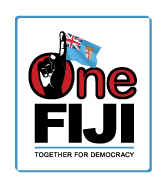When he knows he can't win with Aust and NZ around to keep him honest, he aims to coup the Pacific Islands Forum and create another one.
You can listen to him making a total jack-ass of himself (as usual) here.
Fiji PM says Pacific grouping to strengthen
Updated 1 hour 26 minutes ago
Fiji's interim Prime Minister says he is being encouraged by some Pacific Island Forum nations to include them in next year's Melanasian Spearhead Group meeting. It is Fiji's turn to chair the MSG next year, and it is considering giving observer status to some island nations outside the group to enable them to attend the meeting.
Traditionally MSG membership is restricted to Fiji, Solomon Islands, Vanuatu and Papua New Guinea. But since Fiji's suspension from the Pacific Islands Forum and the Commonwealth, Fiji is barred from meetings such as PACER Plus.
Interim Prime Minister Commodore Frank Bainimarama says Fiji's needs a forum to discuss issues of common interest to the whole region.
